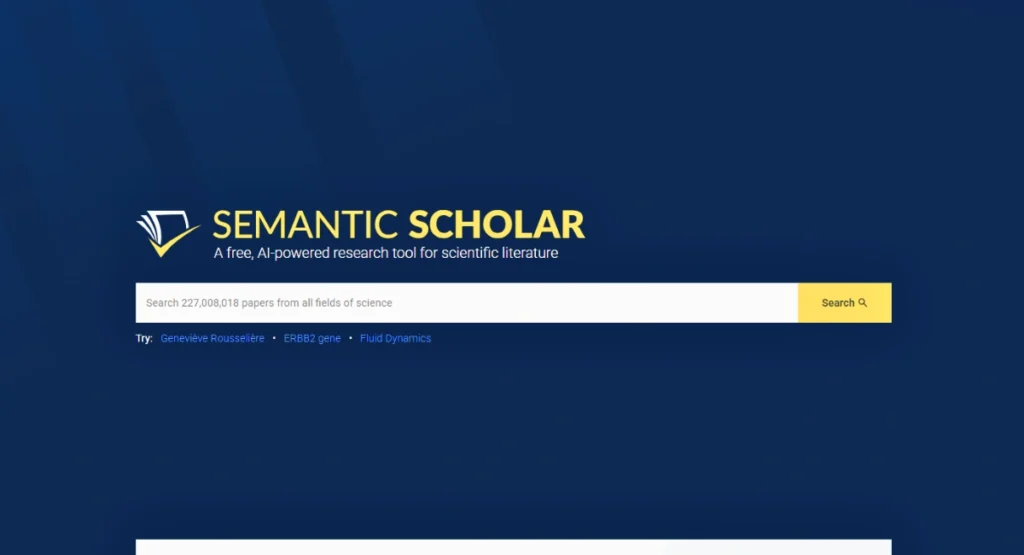Semantic Scholar
Vista Vibrante Verdict
Features
Accessibility
Compatibility
User Friendliness
What is Semantic Scholar?
Navigating the vast expanse of academic literature can be overwhelming. Semantic Scholar addresses this challenge by employing advanced AI techniques to help researchers efficiently discover and comprehend scientific papers.
With features like concise summaries, citation insights, and personalized recommendations, it transforms the traditional literature review process into a more manageable and insightful experience.

Semantic Scholar Summarized Review | |
Performance Rating | A+ |
AI Category | AI Research Tools and Assistants, Academic Research & Literature Discovery Tool |
AI Capabilities | Natural language processing (NLP), Machine Learning (ML) |
Pricing Model | Free |
Compatibility | Web-based |
Accuracy | 4.5 |
Key Features
Semantic Scholar offers several advanced features, such as:
- AI-Powered Search
- TLDR Summaries
- Citation Analysis
- Semantic Reader
- Personalized Research Feeds
- Author Profiles
- Paper Metadata Extraction
- Open API Access
Who Should Use Semantic Scholar?
- Graduate Students: Quickly find, summarize, and organize scholarly articles for thesis writing and literature review projects.
- Academic Researchers: Discover relevant papers, analyze citations, and track evolving trends in specific research fields efficiently.
- University Professors: Curate reading materials, identify research gaps, and support academic writing with AI-powered scholarly tools.
- Librarians & Information Specialists: Assist users in sourcing high-quality academic literature and visualizing citation networks effectively.
- Science and Policy Analysts: Explore peer-reviewed publications to inform reports, policy frameworks, and data-driven strategic planning initiatives.
Pricing & Plans
Semantic Scholar is entirely free to use, with no premium tiers or hidden costs.
Pros & Cons
Pros
- AI-driven search enhances the relevance of results
- Concise summaries expedite literature reviews
- User-friendly interface with intuitive navigation
- Comprehensive citation analysis tools
- Free access without subscription barriers
Cons
- Limited integration with some reference management software
- Coverage may vary across different academic disciplines
- No dedicated mobile application
Final Verdict
Semantic Scholar effectively harnesses AI to simplify and enhance the academic research process. Its suite of features, from TLDR summaries to citation analyses, offers significant value to researchers seeking efficient literature discovery and comprehension. While there are areas for improvement, such as broader discipline coverage and integration capabilities, its strengths make it a commendable tool in the academic arsenal.
FAQs
Is Semantic Scholar free to use?
- Yes, it is completely free with no subscription fees.
Does it cover all academic disciplines?
- While it has extensive coverage, some disciplines may have less comprehensive representation.
Can I access Semantic Scholar on mobile devices?
- Yes, via web browsers, though there is no dedicated mobile app.

